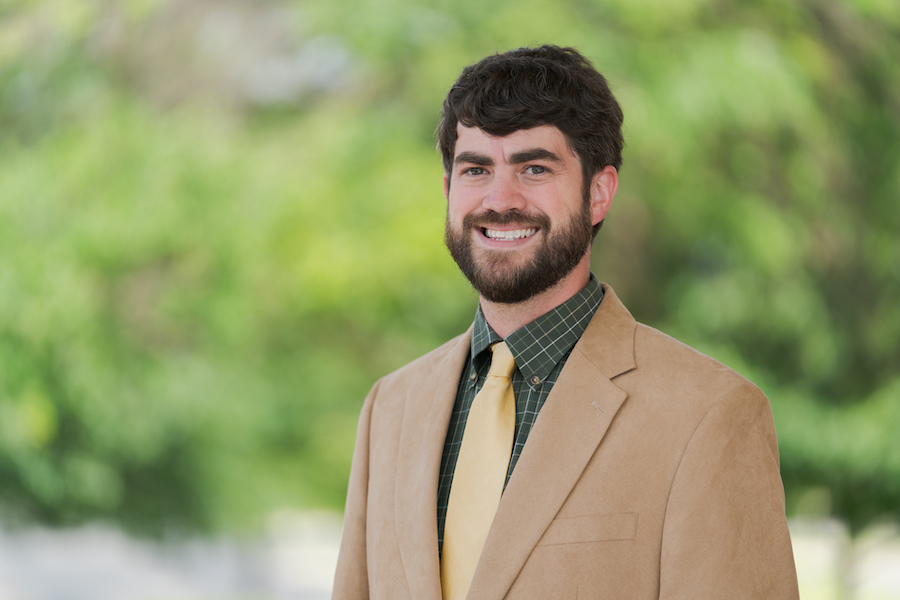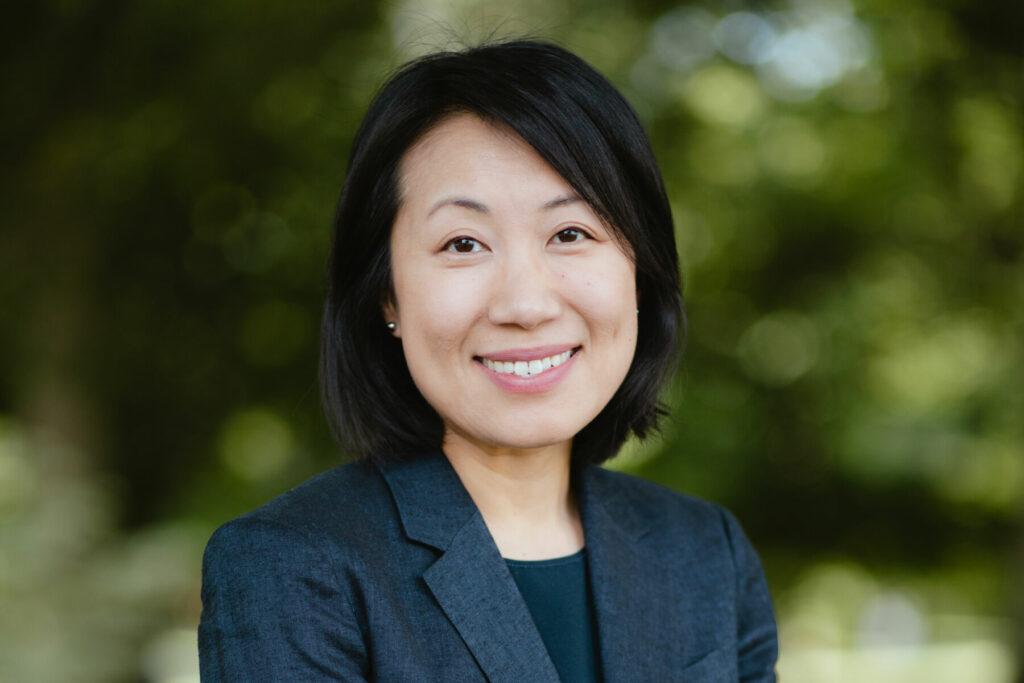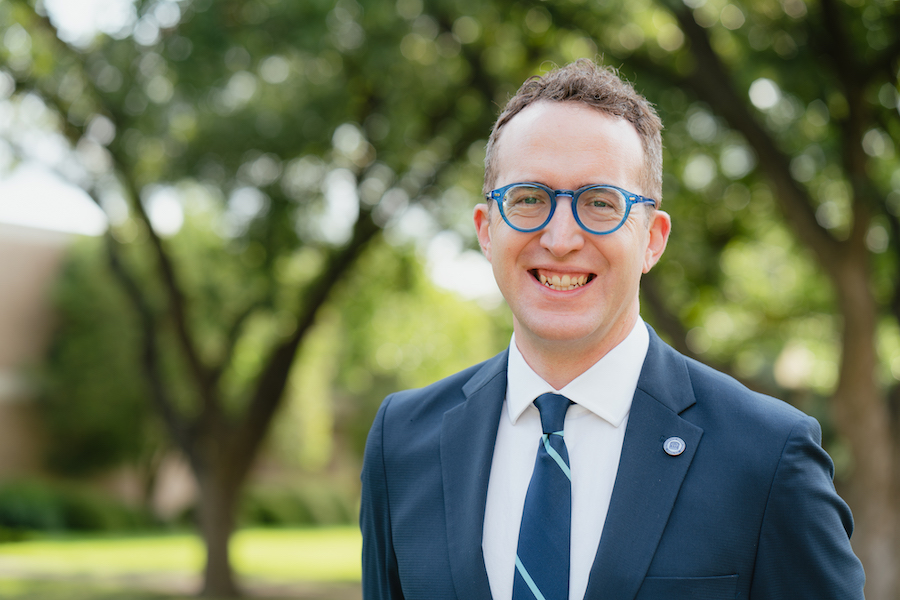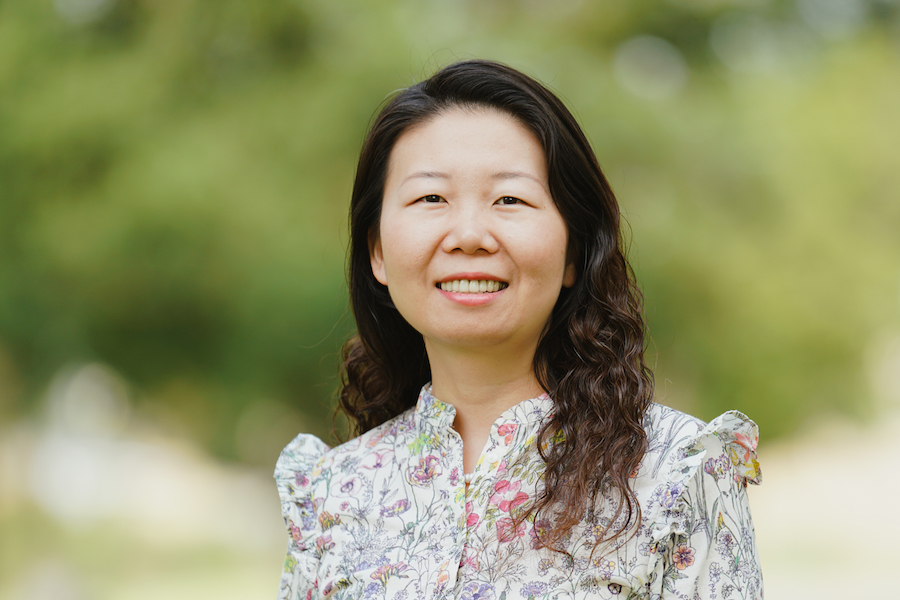Southwestern Seminary, TBC faculty, students demonstrate scholarship at annual ETS meetings

During the 75th annual meeting of the Evangelical Theological Society (ETS) Nov. 13-15 in San Antonio, Texas, 21 Southwestern Baptist Theological Seminary and Texas Baptist College (TBC) faculty and doctoral students presented papers and moderated panel sessions under the meeting theme “Theological Anthropology.”
“Southwestern Seminary faculty and graduate students offered significant presentations in the areas of biblical literature and exegesis, theology, church history, Baptist studies, philosophy, ethics, worship studies, and Christian higher education at the annual meeting of the Evangelical Theological Society,” said President David S. Dockery, who previously served as president of ETS and moderated two panel sessions during the meetings. “These presentations represent Southwestern’s commitment to serious evangelical and Baptist scholarship, which undergirds the quality classroom teaching and service to churches that takes place throughout the academic year on our campus.”
Madison Grace II, provost and vice president for academic administration and dean of the School of Theology, noted that Southwestern and TBC “faculty have led out in conversations in theology, biblical studies, philosophy, and ethics.” He added that the institution’s “students have been able to present their own work as well as engage scholars from around the world.”
“The academic field of religion is quite broad of which confessing evangelicals is a minority,” Grace added. “Having a society that is confessionally limiting of like-minded scholars is a necessity for conservative, theological research.”

Blake McKinney, assistant professor of history and humanities at Texas Baptist College presented “Baptists & Evangelicals Together: How David Dockery Helped Southern Baptists Become Evangelicals” during the Nov. 13-15 Evangelical Theological Society meetings in San Antonio, Texas.
TBC Assistant Professor of History and Humanities Blake McKinney presented “Baptists & Evangelicals Together: How David Dockery Helped Southern Baptists Become Evangelicals” about the Southwestern Seminary president. McKinney said he became interested in the topic after researching for an article that was included in the spring issue of the Southwestern Journal of Theology titled, “Who are Southern Baptists?” He explained “in order to do my due diligence” he read James Leo Garrett and Glenn Hinson’s book Are Southern Baptists Evangelicals? which also led him to read Dockery’s follow-up work Southern Baptists and American Evangelicals: The Conversation Continues.
McKinney said he began looking at Dockery’s “publication record concerning the question of Southern Baptist/evangelical relations and thought it worth exploring further.” The result was his presentation which provided an overview of Dockery’s “academic career, conference organization, and selected publications relating to Southern Baptists’ relation to evangelicalism.”
The paper “shows how Dr. Dockery helped shape internal Southern Baptist conversations about their relations to evangelicalism by modeling, convening, and encouraging Southern Baptist/evangelical dialogue that transformed the terms of the debate,” McKinney explained. “He helped develop relational networks and scholarship that aided in the transformation of Southern Baptist perceptions of the role of the SBC within broader evangelicalism” and thusly “carried on James Leo Garrett’s understanding of Southern Baptists as “denominational evangelicals.”
McKinney noted his paper was “a reminder that Southern Baptists were once far more isolated” and “we are at our best when we have a common consensus around the Gospel.”

Associate Professor of Biblical Counseling Lilly Park addressed the topic “A Relational Argument for Human Sexuality.” She argued for “the importance of a covenantal view of the image of God to address biblical sexuality, in particular shame and guilt.”
Lilly Park, associate professor of biblical counseling, “discussed an aspect of theological anthropology for biblical sexuality” in her paper “A Relational Argument for Human Sexuality.” Park said, “The culture’s influence on sexuality and attack on biblical sexuality have created confusion among Christians.” She added her desire was “to address this topic biblically, theologically, and practically so that the church is prepared to respond thoughtfully and lovingly.”
Through her presentation, Park argued for “the importance of a covenantal view of the image of God to address biblical sexuality, in particular shame and guilt.”
“Practically, the church could display Jesus’s example by caring for people with compassion and speaking biblical truth in love rather than isolating or shaming individuals who wrestle with questions about their sexuality,” Park added. She noted that “theological academia serves the church” and her “desire is for churches to be more equipped in addressing complicated topics and caring for suffering people.”

In his paper “The Promise and Parameters of Theological Retrieval: Dogmatics, Patristics, and Method,” Coleman Ford, assistant professor of humanities at TBC and his co-presenter Shawn Wilhite, associate professor of Christian ministries at California Baptist University, “proposed ways to consider how retrieval can continue and contribute to healthy theological dialogue and a renewal of Christian spirituality.”
In addition to moderating a session on Augustine, Coleman Ford, assistant professor of humanities at TBC, presented a paper on “The Promise and Parameters of Theological Retrieval: Dogmatics, Patristics, and Method” alongside his co-presenter Shawn Wilhite, associate professor of Christian ministries at California Baptist University. Ford explained that he and Wilhite “write on these topics in various books and articles” and their paper emerged from those works.
Ford and Wilhite’s presentation “briefly focused on the history of the ressourcement movement from theologians such as Henri de Lubac and Jean Daniélou,” Ford said. He added the duo “then proposed ways to consider how retrieval can continue and contribute to healthy theological dialogue and a renewal of Christian spirituality.”
Ford said while “the notion of theological retrieval is nothing new” he believes “Christians of every generation need to listen closely to the voices of the past.”
“This does not mean that we agree with everything that earlier Christians said and did, but that we listen charitably knowing that we stand on the shoulders of giants,” Ford explained. “We have areas of our own thought and practice that can be sharpened by earlier generations of Christians who loved God and read their Bibles deeply.”

Hongyi Yang, associate professor of world Christianity and director of Chinese Language Programs at Southwestern, presented “Seeing Blind Spots through Cross-Cultural Perspective: The Fatherhood of God as Case Study,” which she said she was led to research after she “noticed for a long time the differences between eastern and western cultures.”
Presenting “Seeing Blind Spots through Cross-Cultural Perspective: The Fatherhood of God as Case Study,” Hongyi Yang, associate professor of world Christianity and director of Chinese Language Programs at Southwestern, said she was led to research her topic after she “noticed for a long time the differences between eastern and western cultures.”
Noting that “people take different approaches to get things done,” Yang said while the “secular world” studies various cultures “because they want to do business with different people from various cultures,” it was “the Christian church that started to examine different cultures while Christians spread the good news to the end of the earth.” She added that “while we recognize the differences between our cultures, we learn from each other and get things done better.”
“Culture plays a role in all aspects of human life, including Christian faith and practice,” Yang observed. “With the rise of global Christianity, alternative approaches to understand God’s Word and express Christian faith besides the dominant approach of western Christianity become more prominent.”
Through her paper, Yang used the “important role” of the doctrine of the fatherhood of God “which relates to doctrines of adoption and God’s family, plays in evangelism and discipleship under Chinese context to illustrate that what contemporary western Christianity has ignored can be recaptured through a cross-cultural perspective.”

Joshua Williams, associate professor of Old Testament, presented the paper “The Prototypical God as the Only God: Exploring Monotheism in the Book of Chronicles” in hopes to “explain how one can say that the Lord is greater than all gods while still claiming that he is the only God.”
Joshua Williams, associate professor of Old Testament, presented the paper “The Prototypical God as the Only God: Exploring Monotheism in the Book of Chronicles” which was drawn from the statement that “Manasseh recognized that the Lord is God” from 2 Chronicles 33. Williams, who also serves as the director of research doctoral studies, said he “wanted to pursue what this statement meant in Chronicles and why it occurs after Manasseh’s restoration.”
Williams said he used “an understanding of categorization called prototype theory” which “recognizes a member of a category by similarity to the best example, or the prototype, of that category.” Using this theory, Williams showed “how the Lord is the prototype for the category of god” while simultaneously showing “that Chronicles denigrates all other gods so that they do not fulfill the expected properties of god.” Because the gods are “useless,” the book of “Chronicles can claim both that the Lord is superior to other gods and that He alone is God,” Williams added.
“Hopefully, the topic helps to explain how one can say that the Lord is greater than all gods while still claiming that he is the only God,” Williams concluded.

Andrew Jennings, assistant professor of apologetics, presented his paper “Better for Whom?: Possible World Quality, Instantiated Populations, and Incommensurability” which considered how “God might have judged what kind of world He wanted to create.”
Andrew Jennings, assistant professor of apologetics, presented his paper “Better for Whom?: Possible World Quality, Instantiated Populations, and Incommensurability” at the Evangelical Philosophical Society, which meets in conjunction with ETS. Jennings’s paper considered how “God might have judged what kind of world He wanted to create.”
Jennings said his paper focused on the way “the people God chose to create are a major component of His decision about what kind of world to create.”
“The people who have existed and will exist in this world very specifically play into the way we can look at the quality of the world God created,” Jennings added. He explained that while “many participants” in the philosophical Best Possible World Problem discussion “claim that our world is obviously not the best God could have created” and therefore “claim further that God does not exist,” his paper included three main counterclaims.
His counterclaims included “no satisfactory way” to accumulate “good and evil aspects of possible worlds” for God to provide comparison of “any particular world to any other”; “good and evil aspects of any possible world are directly tied to the conscious beings who inhabit those worlds”; and “this way of seeing world quality makes it so that God has a much higher degree of freedom in choosing which world to create without falling victim to the negative claim that He could have created a better one.”
Ben Dockery, executive director of the Lakelight Institute and Dockery’s middle son, presented a paper for the second consecutive year at ETS. His 2023 presentation was “Ted Engstrom, the Image of God, and Leadership Excellence.”
Presentations:
Brian Berry, God’s Kingdom in the Doxological Speeches of Daniel. Berry was also the 2023 recipient of the B&H Academic’s Ethnic Minority ETS Scholarship.
Coleman M. Ford, The Promise and Parameters of Theological Retrieval: Dogmatics, Patristics, and Method
Andrew Jennings, Better for Whom?: Possible World Quality, Instantiated Populations, and Incommensurability
Blake McKinney, Baptists & Evangelicals Together: How David Dockery Helped Southern Baptists Become Evangelicals
Lilly Park, A Relational Argument for Human Sexuality
Shane W. Parker, Our Great and Difficult Work: Shared Resilience in Pastoral Leadership Teams
Joshua E. Williams, The Prototypical God as the Only God: Exploring Monotheism in the Book of Chronicles
Hongyi June Yang, Seeing Blind Spots through Cross-Cultural Perspective: The Fatherhood of God as Case Study
Session Moderators:
Augustine, Coleman M. Ford, moderator
Christian Higher Education, David S. Dockery, moderator
Expanding Evangelical Horizons, Robert W. Caldwell III, moderator
Just War and Christian Traditions, David S. Dockery, moderator
New Perspectives on Old Princeton, 1812-1929, Robert W. Caldwell III, moderator
Studies in Matthew, Jim Wicker, moderator
Student and Recent Graduate Presentations:
John Paul Arceno, Doing Theological Anthropology in Digital World: Faith, Man, and Cyberspace
Holly Mulherin Farrow, Lament in the Dark: Sin, Doubt, and Suffering in the Hymnody of Anne Dutton and Anne Steele
Joshua Hebert, The Destruction of the Sea in Revelation 21:1 in Light of Roman Imperial Ideology
William Warren Henry Jr., Anthropology of the Dead Who Wait at Judgment in Hebrews 9:27–28
Tamim Khaliqi, Can Virtue Be Taught? Neuroscience and Ethical Formation
Matthew McCraney, The Physical Dimension of the Image of God and Its Impact on People with Disabilities
Braden McKinley, Confession of Sin for Post-Christian Culture
Zelda Meneses-Reus, For the Beauty of the Earth: Ecological Theology in the Hymns of Isaac Watts
Drew Smith, From Modal Collapse to Moral Collapse: Raising the Stakes in the Debate over Divine Simplicity
Sean Matthew Wegener, A New Definition of Holiness?: Placing Peter Gentry and John Bainbridge Webster in Conversation
Student and Recent Graduate Moderators:
Evangelical Philosophical Society B3, Drew Smith, moderator
Systematic Theology, Sean Matthew Wegener, moderator



